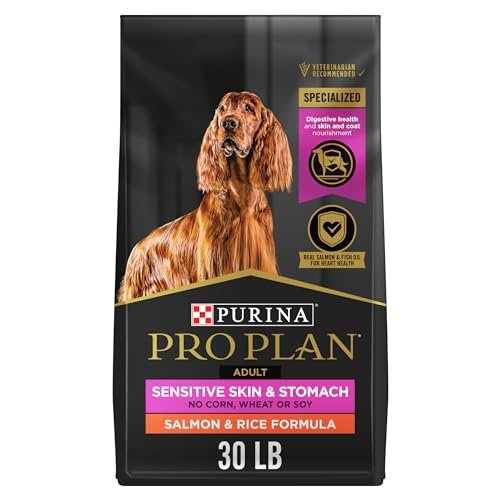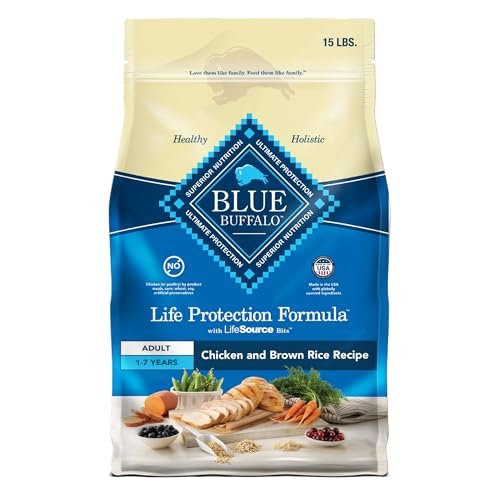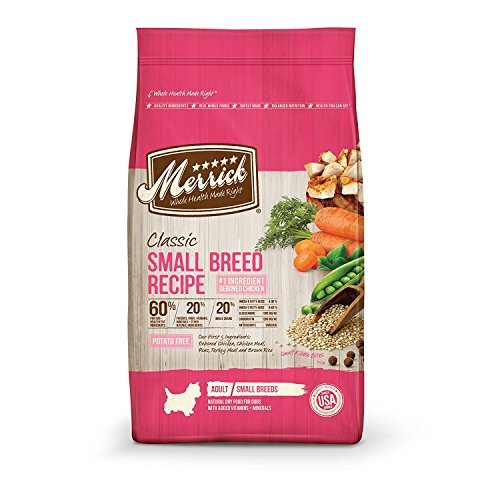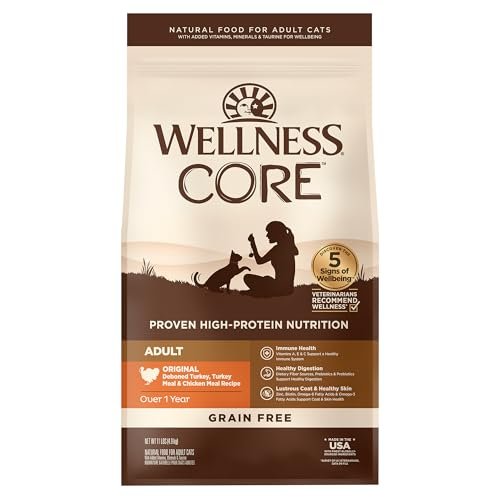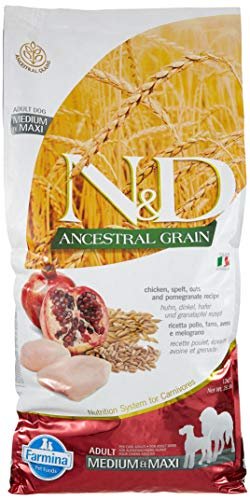As we head into 2026, providing your active Cocker Spaniel with a diet that meets their specific nutritional needs is more important than ever. With an evolving market and new research shaping our understanding of canine health, choosing the right food can feel like a complex task.
From the booming trend of fresh, human-grade meals to the latest findings on grain-inclusive and grain-free diets, the options are vast. But don’t worry; we’ve done the research to guide you through the best dog food for Cocker Spaniels in 2026.
In this updated guide, we’ll explore the top food choices for your furry friend, considering their age, activity level, and potential health concerns. We’ll also look into the latest 2025-2026 nutritional science and pet food trends to ensure your Cocker Spaniel thrives.
This page doesn’t aim to list every type of dry and wet dog food available. Instead, it provides direct access to the best dog food for Cocker Spaniels in 2026, helping your pup thrive on a diet that meets all their nutritional needs.
We’ve also included links to purchase these products from various online pet stores, making it easy for you to order from home with confidence that you’re getting the best prices.
When you buy Cocker Spaniel food through our links, we may earn a small commission—this helps keep The Nomad Paws running and allows us to continue offering all our content for free.
There’s no additional cost to you, and our commission doesn’t affect the price you pay. So thank you for supporting us by reading and shopping through our site!
Ready to discover how to keep your Cocker Spaniel’s tail wagging with the perfect diet for 2026?
Our 2026 Methodology
For our 2026 update, The Nomad Paws team consulted 7 professional canine nutritionists and reviewed the latest research from 2025 and 2026 to gather expert opinions on various dog food products. We also analyzed current market trends and SEO data to provide the most relevant and helpful recommendations.
These specialists helped us select the best options specifically tailored for Cocker Spaniels, taking into account their unique nutritional requirements and common health concerns, with a focus on ingredient transparency and functional benefits.
Balanced Diet for an Active 2026 Cocker Spaniel

Your Cocker Spaniel’s diet should be as lively as their personality, packed with high-quality lean meats for muscle maintenance and omega-3 fatty acids to keep their gorgeous coat shiny. A balanced diet should also include essential vitamins and minerals that promote skin and joint health.
For 2026, the focus on canine nutrition has sharpened, emphasizing not just the quality of ingredients but their sourcing and purpose. You’ll want to include complex carbohydrates from whole grains to fuel their endless energy and play sessions, while essential antioxidants from fruits and vegetables support their overall health and immune system. The trend towards functional ingredients means looking for foods that do more than just fill their belly; they should actively contribute to your Cocker’s well-being.
High-Quality Lean Meats
Cocker Spaniels thrive on a diet rich in high-quality lean meats. Focus on protein sources like chicken, turkey, and fish. These lean meats are packed with essential nutrients that support your Cocker’s active lifestyle, providing moderate protein levels to maintain muscle mass without excessive fat—crucial for preventing weight gain, a common issue for this breed.
In 2026, ingredient transparency is a major trend [1]. Pet parents want to know where their dog’s food comes from. Look for brands that are open about their sourcing, prioritizing farm-raised poultry and wild-caught fish.
Vet’s Tip: When selecting lean meats for your Cocker Spaniel, opt for farm-raised chicken or turkey and wild-caught fish. These sources are typically lower in contaminants and higher in beneficial omega-3 fatty acids, which can promote a healthy coat and skin.
Omega-3 for a Healthy Coat and Mind

Let’s talk about something that’ll make your Cocker Spaniel’s coat shine: Omega-3 fatty acids. These essential nutrients are your furry friend’s secret weapon for maintaining a healthy coat and skin. They’re particularly great at reducing inflammation and dryness, which Cocker Spaniels can be prone to.
A balanced diet rich in high-quality proteins and fats, including Omega-3, is vital for their overall well-being. As an added bonus, recent studies suggest Omega-3s also support cognitive function in aging dogs.
Vet’s Tip: Look for dog foods containing fish oil or flaxseed as these are excellent sources of Omega-3 fatty acids for your Cocker Spaniel. For an extra boost, consider adding a fish oil supplement to their diet, especially for senior dogs.
When you feed your pup a diet rich in Omega-3, you’re helping to strengthen their skin barrier and ward off pesky allergies and irritations. Many high-quality dog foods for Cocker Spaniels include fish oil, a fantastic source of Omega-3. You’ll likely notice a visible improvement in your dog’s coat within weeks. It’ll be softer, shinier, and less prone to shedding.
Complex Carbs for Sustained Energy
With all that energy your Cocker Spaniel has, they need the right fuel to keep them going. Complex carbohydrates are the secret ingredient for your furry friend’s diet. These slow-releasing energy sources help maintain steady blood sugar levels, preventing those pesky energy crashes.
For your Cocker Spaniel puppy and adult dogs alike, aim for 30-50% of their diet to be carbs from whole grains like brown rice, barley, and oats. These fiber-rich foods aren’t just great for energy; they also aid digestion and help your pup feel full, which is essential for maintaining a healthy weight.
Vet’s Tip: Adjust your Cocker Spaniel’s carb intake based on their activity level. More active dogs may require a higher percentage of carbs, while less active ones might need fewer to maintain a healthy weight.
Essential Antioxidants for a Strong Immune System

Every active pup needs a superhero sidekick, and for Cocker Spaniels, that’s antioxidants! These mighty molecules play an essential role in your furry friend’s balanced diet. They help neutralize free radicals, reduce inflammation, and support your Cocker’s immune system.
You’ll want to include foods rich in vitamins C and E, like blueberries, spinach, and carrots. These tasty treats not only provide important antioxidants but also pack a punch with vitamins and minerals. The trend towards functional foods in 2026 means many high-quality dog foods are now fortified with these beneficial ingredients.
Vet’s Tip: When selecting antioxidant-rich foods for your Cocker Spaniel, opt for dog-safe fruits and vegetables. Avoid grapes, raisins, and onions, which can be toxic to dogs.
Best Dog Food for Cocker Spaniels in 2026: Our Top Picks
Choosing the right nutrition for your Cocker Spaniel is crucial for their health and happiness. These energetic, medium-sized dogs have specific dietary needs that must be met to maintain their lustrous coats, support their active lifestyles, and prevent common breed-specific health issues.
In this part of our 2026 guide, we’ll explore a range of high-quality dog food options tailored to Cocker Spaniels, from premium selections to more budget-friendly choices, and the rising trend of fresh, human-grade meals.
The Rise of Fresh & Human-Grade Dog Food in 2026
The biggest trend in dog food for 2026 is the explosive growth of fresh, human-grade dog food. With an 86.5% rise in sales since 2021, it’s clear that pet parents are prioritizing minimally processed, nutrient-dense meals for their dogs [2]. Brands like Ollie, The Farmer’s Dog, and Nom Nom are leading this charge, offering gently cooked recipes delivered right to your door. These foods are often formulated by veterinary nutritionists and use high-quality, transparently sourced ingredients, aligning perfectly with the 2026 focus on traceability and functional nutrition.
While we won’t be reviewing specific fresh food brands in this section (as they are often subscription-based), it’s a trend worth considering for your Cocker Spaniel, especially if they have a sensitive stomach or are a picky eater. Many owners who have made the switch report improvements in their dog’s coat, energy levels, and overall health.
Top Dry & Wet Food Recommendations
Royal Canin Cocker Spaniel Adult Dry Dog Food, Royal Canin
as of February 10, 2026 11:13 am
Price History
Statistics
| Current Price | $34.99 | February 10, 2026 |
| Highest Price | $34.99 | May 29, 2025 |
| Lowest Price | $34.99 | May 29, 2025 |
Last price changes
| $34.99 | May 29, 2025 |
Specifically formulated for Cocker Spaniels, this kibble addresses the breed’s tendency towards weight gain and promotes coat health. Its unique shape encourages chewing, supporting dental hygiene – a crucial factor for this breed prone to dental issues.
Hill's Science Diet Perfect Weight, Hill's Pet Nutrition Sales, Inc.
as of February 10, 2026 11:13 am
Price History
Statistics
| Current Price | $25.99 | February 10, 2026 |
| Highest Price | $25.99 | November 11, 2025 |
| Lowest Price | $25.99 | November 11, 2025 |
Last price changes
| $25.99 | November 11, 2025 |
Ideal for Cocker Spaniels needing weight management, this formula helps maintain a healthy weight while providing essential nutrients. It’s rich in lean proteins and L-carnitine, supporting muscle maintenance and fat metabolism.
Purina Pro Plan Sensitive Skin and Stomach, Nestle Purina Pet
as of February 10, 2026 11:13 am
Price History
Statistics
| Current Price | $77.48 | February 10, 2026 |
| Highest Price | $77.48 | November 11, 2025 |
| Lowest Price | $77.48 | November 11, 2025 |
Last price changes
| $77.48 | November 11, 2025 |
Many Cocker Spaniels have sensitive stomachs, and this easily digestible formula caters to that need. Enriched with probiotics and omega-3 fatty acids, it promotes digestive health and supports the breed’s signature coat.
Blue Buffalo Life Protection Formula, Blue Buffalo Company, Ltd
as of February 10, 2026 11:13 am
Price History
Statistics
| Current Price | $62.99 | February 10, 2026 |
| Highest Price | $62.99 | November 12, 2025 |
| Lowest Price | $36.00 | May 29, 2025 |
Last price changes
| $62.99 | November 12, 2025 |
| $37.98 | October 31, 2025 |
| $48.88 | October 30, 2025 |
| $36.00 | May 29, 2025 |
This holistic recipe features deboned chicken as its primary ingredient, providing high-quality protein for muscle development. The added glucosamine supports joint health, addressing the breed’s predisposition to hip dysplasia.
Merrick Healthy Grains Premium, Merrick Pet Care
as of February 10, 2026 11:13 am
Price History
Statistics
| Current Price | $23.98 | February 10, 2026 |
| Highest Price | $23.98 | May 29, 2025 |
| Lowest Price | $23.98 | May 29, 2025 |
Last price changes
| $23.98 | May 29, 2025 |
A grain-inclusive option that combines quality proteins with wholesome grains, supporting the energy needs of active Cocker Spaniels. The balanced omega fatty acids promote skin and coat health.
Wellness CORE High Protein Grain-Free Original Formula, WellPet Operations: Mishawaka, IN
as of February 10, 2026 11:13 am
Price History
Statistics
| Current Price | $42.79 | February 10, 2026 |
| Highest Price | $42.79 | May 29, 2025 |
| Lowest Price | $42.79 | May 29, 2025 |
Last price changes
| $42.79 | May 29, 2025 |
For owners preferring a grain-free diet, this protein-rich formula supports lean muscle mass and provides sustained energy. It includes probiotics and prebiotic fiber for optimal digestive health. Please see our updated section on grain-free diets and the associated health concerns before choosing this option.
Nutro Ultra Adult Dry Dog Food, Mars Petcare
as of February 10, 2026 11:13 am
Price History
Statistics
| Current Price | $23.99 | February 10, 2026 |
| Highest Price | $24.11 | May 29, 2025 |
| Lowest Price | $23.98 | June 10, 2025 |
Last price changes
| $23.99 | October 27, 2025 |
| $23.98 | June 10, 2025 |
| $24.11 | May 29, 2025 |
This trio of proteins (chicken, lamb, and salmon) offers a diverse amino acid profile, supporting overall health. The blend of superfoods provides antioxidants, promoting a robust immune system.
Taste of the Wild Pacific Stream Grain-Free, Diamond Pet Foods
as of February 10, 2026 11:13 am
Price History
Statistics
| Current Price | $58.99 | February 10, 2026 |
| Highest Price | $58.99 | November 11, 2025 |
| Lowest Price | $58.99 | November 11, 2025 |
Last price changes
| $58.99 | November 11, 2025 |
Featuring salmon as the primary protein source, this grain-free option is excellent for Cocker Spaniels with food sensitivities. Rich in omega-3 fatty acids, it supports coat health and reduces inflammation. Please see our updated section on grain-free diets and the associated health concerns before choosing this option.
IAMS Proactive Health Minichunks, IAMS
as of February 10, 2026 11:13 am
Price History
Statistics
| Current Price | $26.97 | February 10, 2026 |
| Highest Price | $29.98 | May 29, 2025 |
| Lowest Price | $26.97 | August 7, 2025 |
Last price changes
| $26.97 | August 7, 2025 |
| $29.98 | May 29, 2025 |
A budget-friendly option that doesn’t compromise on quality, this formula features chicken as its first ingredient. The optimal protein-to-fat ratio helps maintain a healthy weight, crucial for this breed.
Farmina Natural & Delicious Low-Grain, Farmina
as of February 10, 2026 11:13 am
Price History
Statistics
| Current Price | $92.99 | February 10, 2026 |
| Highest Price | $94.99 | July 17, 2025 |
| Lowest Price | $90.11 | June 27, 2025 |
Last price changes
| $92.99 | November 7, 2025 |
| $94.99 | July 17, 2025 |
| $90.11 | June 27, 2025 |
| $90.26 | June 21, 2025 |
This low-grain formula mimics a dog’s ancestral diet, providing high-quality animal proteins and limited, easily digestible grains. It supports the Cocker Spaniel’s active lifestyle while promoting optimal digestion.
Wet Food Recommendations
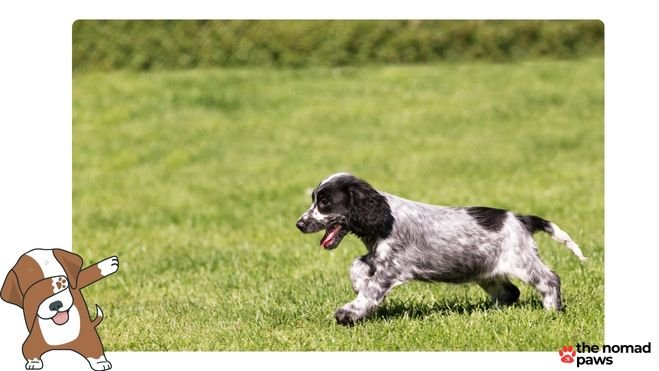
When it comes to balanced nutrition, brands like Blue Buffalo Homestyle Recipe and Merrick Grain-Free are excellent choices. These options provide the perfect mix of high-quality proteins, essential fatty acids, and vitamins to keep your pup’s coat shiny and their overall health in top shape.
Vet’s Tip: Wet food isn’t just tasty; it’s also great for hydration and easy digestion. This makes it ideal for Cocker Spaniels with sensitive tummies or dental issues. Consider mixing wet food with dry kibble for a balanced diet that provides both nutrition and dental benefits.
Puppy-Specific Cocker Formulas

Growing Cocker Spaniel puppies need special nutrition, and that’s where puppy-specific formulas come in handy. These foods are packed with protein, usually around 28-30%, to help your furry friend build strong muscles. They’re also rich in essential fatty acids, which are great for keeping your pup’s skin healthy and coat shiny.
Our Nutritionists Say: Look for puppy food that includes DHA for brain development and essential fatty acids for coat health. Avoid fillers like corn and wheat to support digestive health.
Senior Cocker Nutrition Choices

Senior Cocker Spaniels benefit from a balanced diet that’s lower in calories and higher in fiber. This helps them maintain a healthy weight and supports their digestive system. You’ll want to look for foods rich in omega-3 and omega-6 fatty acids, which are great for keeping their joints healthy and reducing inflammation.
Top picks for senior Cocker Spaniels include Hill’s Science Diet Adult 7+ for Small Breeds and Royal Canin Adult 8+ for Small Dogs. These formulas are specifically designed to meet the nutritional needs of aging small breed dogs.
Hypoallergenic Cocker Options
Many Cocker Spaniels have sensitive tummies, making hypoallergenic options a game-changer for their diet. If your furry friend struggles with food allergies, you’re in luck! Hypoallergenic dog food is designed to minimize allergic reactions, often using limited ingredient formulas that exclude common troublemakers like wheat, corn, and soy.
Brands like Blue Buffalo Basics and Wellness Simple offer grain-free options packed with high-quality proteins and essential fatty acids. These foods promote healthy skin and a shiny coat while reducing allergy risks.
Our Nutritionists Say: Look for novel protein sources like duck or lamb, which can help prevent food sensitivities in your Cocker Spaniel. Don’t forget about easily digestible carbs like sweet potatoes and peas – they’ll keep your pup energized without upsetting their tummy.
Remember to consult your vet when choosing a hypoallergenic food to guarantee it meets your dog’s specific needs.
Grain-Free Diets in 2026: An Updated Look

The debate around grain-free diets for dogs continues into 2026, but the conversation has shifted. While once a dominant trend, the growth of grain-free dog food sales has slowed significantly, with many pet parents returning to grain-inclusive options [3]. This is largely due to ongoing concerns about a potential link between grain-free diets and a heart condition called canine dilated cardiomyopathy (DCM).
It’s essential to weigh the latest scientific findings carefully and consult with your vet before making any big changes to your furry friend’s diet.
The DCM Concern: What the 2025-2026 Research Says
In July 2018, the FDA began investigating reports of DCM in dogs eating certain pet foods, many labeled as “grain-free” and containing a high proportion of peas, lentils, and other legumes [4]. While the FDA has not released a major public update since late 2022, stating the issue is a “complex scientific issue that may involve multiple factors,” the research has not stopped.
A 2025 study highlighted a potential mechanism called “phospholipidosis” in dogs with diet-associated DCM, linked to high-pulse diets [5]. Furthermore, case studies continue to be published, such as a 2024 report of a Labrador Retriever with grain-free diet-induced DCM that showed significant improvement after switching to a grain-inclusive food [6]. This suggests that for some dogs, the condition may be reversible with dietary changes.
Vet’s Tip: Given the ongoing research and the potential risks, it is wise to be cautious. Unless your Cocker Spaniel has a diagnosed grain allergy, there is no proven health benefit to feeding a grain-free diet. Consult with your veterinarian to choose the best food for your dog’s specific needs, and consider diets from well-established manufacturers who conduct extensive feeding trials.
If you are worried about your Cocker’s food, it’s best to chat with your vet. They can help you pick the right chow to keep your furry friend’s ticker in top shape!
Choosing the Right Food Type for Your 2026 Cocker Spaniel
As you see, when it comes to feeding your Cocker Spaniel in 2026, you have several options to evaluate. You’ll want to weigh the pros and cons of dry kibble, wet food, raw diets, and freeze-dried options to find what works best for your furry friend. Each type of food has its own benefits, so let’s take a closer look.
Dry Kibble
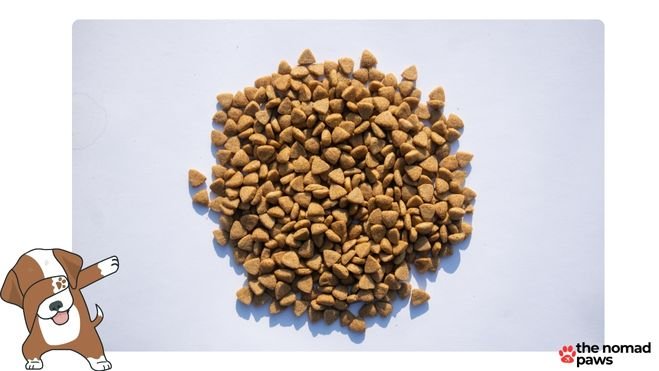
Let’s talk about dry kibble, the go-to choice for many Cocker Spaniel owners. When selecting this healthy dry food option, you’ll want to focus on quality ingredients. Look for brands that use real meat and avoid fillers like corn, wheat, and potatoes. Your Cocker Spaniel needs a protein content of at least 23% and about 12% fat to stay energetic and build muscle.
Vet’s Tip: When changing to a new brand of kibble, transition gradually over four days to prevent digestive upset in your Cocker Spaniel.
Wet Food

Wet food can be a great addition to your Cocker Spaniel’s diet, especially if you’re looking to boost their hydration. It’s packed with moisture, which is particularly beneficial for these pups who may be prone to urinary issues. Plus, many wet food options offer high-quality protein sources that cater to your Cocker’s unique nutritional needs.
Vet’s Tip: When choosing wet food for your Cocker Spaniel, opt for varieties free from fillers and common allergens like corn, wheat, and soy. This can help reduce the risk of food sensitivities and promote better overall health.
Raw Diet
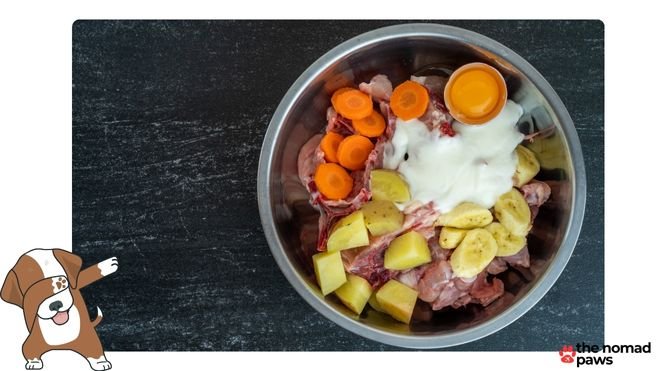
Moving from canned cuisine to the wild side, let’s talk about raw diets for your Cocker Spaniel. This approach mimics what dogs eat in nature, including raw meaty bones, organ meats, and various fruits and veggies. It’s packed with nutrients that can boost your pup’s health, but it’s essential to get the balance right.
Vet’s Tip: Always consult with a veterinarian or canine nutritionist before starting a raw diet. They can help create a balanced meal plan tailored to your Cocker Spaniel’s specific nutritional needs.
Freeze-Dried Options

In the world of doggy dining, freeze-dried options are making quite a splash for Cocker Spaniels. These lightweight, nutrient-packed meals offer convenience without compromising on quality. Freeze-dried dog food retains essential nutrients and flavors, making it an excellent choice for your furry friend.
Vet’s Tip: When switching to freeze-dried food, introduce it gradually over 7-10 days by mixing it with your dog’s current food. This helps prevent digestive upset and allows your Cocker Spaniel to adjust to the new diet.
How Much Should a Cocker Spaniel Eat?

As your Cocker Spaniel grows, their nutritional needs change considerably. You’ll need to adjust their diet at key life stages to support their health and energy levels. Let’s explore how to feed your Cocker Spaniel properly from puppyhood through their senior years.
Cocker Spaniels Puppy Nutrition
Ever wondered what to feed your Cocker Spaniel puppy? These adorable furballs need special nutrition to grow up healthy and strong. Your puppy’s feeding guide should start with one to two cups of puppy food at four weeks old, gradually increasing to four to five cups by twelve weeks.
Vet’s Tip: Choose high-quality puppy food specifically formulated for small breeds to ensure your Cocker Spaniel gets the right balance of nutrients for optimal growth.
Cocker Spaniel Puppy Feeding Guidelines
At four weeks old, your pup needs one to two cups of high-quality food daily, increasing to four or five cups by twelve weeks. Divide this into three or four meals throughout the day to aid digestion and keep energy levels steady.
Adult Cocker Spaniels Nutrition
Your Cocker Spaniel’s first birthday marks a big change in their diet. As your furry friend enters adulthood, their nutritional needs shift. Adult Cocker Spaniels thrive on a balanced diet with 20-30% protein and 8-15% fat. This helps maintain a healthy weight and supports their energy levels.
Vet’s Tip: Be mindful of treats and table scraps. Limit these extras to no more than 10% of your Cocker Spaniel’s daily calorie intake to maintain a healthy weight.
Adult Cocker Spaniel Feeding Guidelines
Adult Cocker Spaniels have specific nutritional needs that require careful attention. When it comes to feeding your Cocker Spaniel, you’ll want to aim for less than 1000 calories per day, split into two meals. This helps with digestion and keeps your pup feeling satisfied.
Senior Cocker Spaniels Nutrition
When your Cocker Spaniel reaches their golden years, it’s time to adjust their diet. Senior dogs need special nutrition to maintain their health and well-being. Focus on weight management by choosing lower-calorie foods, as your pup’s metabolism slows down with age.
Vet’s Tip: Consider adding supplements like glucosamine and chondroitin to your senior Cocker Spaniel’s diet to further support joint health and mobility.
Senior Cocker Spaniels Feeding Guidelines
Senior Cocker Spaniels typically need fewer calories, usually under 1000 per day, depending on their weight and activity level. It’s best to divide their meals into two servings to help with digestion and prevent tummy troubles.
Ear Infections in Spaniels and the Diet Connection

Those adorable floppy ears on your Cocker Spaniel are a trademark of the breed, but they’re also a hotspot for trouble. Your pup’s long ears can trap moisture and debris, creating the perfect environment for ear infections. To keep those ears healthy, it’s important to clean them weekly with a vet-approved solution.
Diet plays a significant role in ear health. Foods rich in omega-3 and omega-6 fatty acids can help reduce inflammation and promote skin health, potentially lowering the risk of ear infections. Also, keep an eye out for allergies, as they can make ear problems worse in your Cocker Spaniel. In fact, chronic ear infections are often a key sign of underlying food sensitivities.
Our Nutritionists Say: Consider incorporating fish oil supplements or foods high in omega-3 fatty acids, such as salmon or sardines, into your Cocker Spaniel’s diet to support overall ear health and reduce inflammation.
Gradual Food Swap Process
When switching your Cocker Spaniel to a new food, keep a close eye on their bathroom habits. Loose stools can be a sign that the change is happening too quickly or that the new food doesn’t agree with your pup’s tummy. If you notice any digestive upset, slow down the adjustment process and give your furry friend’s system more time to adjust.
Vet’s Tip: If loose stools persist for more than 48 hours or are accompanied by vomiting, lethargy, or loss of appetite, consult your veterinarian immediately. These symptoms could indicate a more serious underlying condition.







